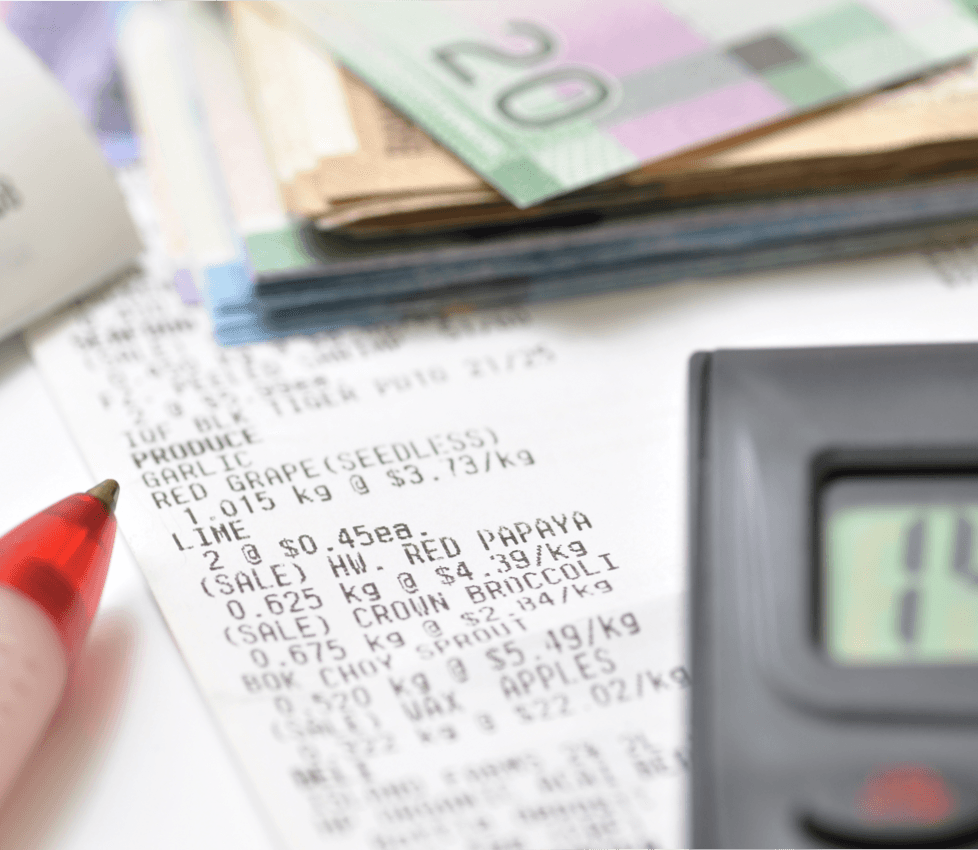 You could be living in the home you’ve always wanted – if it wasn’t for that frustrating (yet necessary) down payment cost. But just because it may take some time to save up the amount you need for a down payment, doesn’t mean it can’t be done!
You could be living in the home you’ve always wanted – if it wasn’t for that frustrating (yet necessary) down payment cost. But just because it may take some time to save up the amount you need for a down payment, doesn’t mean it can’t be done!
It’s time to tighten those purse strings and start saving.
Whether you need to come up with a 5% down payment for your first home or are hoping to put down a larger amount to avoid paying mortgage insurance, you’ll need to get motivated to build your savings.
We’re here to talk strategy.
The ideas below may help you figure out where that important down payment money could come from, so let’s dive right in!
 Prioritize to Monetize
Prioritize to Monetize
Starting with a solid plan you can stick to can be extremely helpful in reaching your savings goal. First, review your spending habits. Prioritize what is important and necessary, and then notice areas of over-spending – this is where you’ll want to cut back. Our monthly budget worksheet can help you stay on track.
In addition to changing your spending habits, you’ll want to reduce your debt. This is another area in which you can prioritize. Pay off credit cards as fast as you can, starting with the ones that have the highest interest rate. Once one is paid off (only work on one at a time) take those payments and apply it to the next debt on your list. This also helps with qualifying for a mortgage by improving your credit score through decreasing debt.
Remember, the earlier you start, the easier it gets.
Save Smart
Putting all your change into empty mason jars is certainly a way to build up a small pile of cash over time, but try to think of ways to save that have even more of a payoff. Setting up a tax-free savings account (TFSA) allows you to earn interest on the money you put into it. You can also set up automated transfers on each payday from your regular account to your TFSA.
When it comes to any sort of “extra” income (such as a raise at work, your tax refunds, or year-end bonuses), it’s worth putting that money directly into your savings account. You won’t “miss” this money since it’s additional, so just keep your end goal in mind and resist the urge to splurge.
Less Spending, More Selling
On the topic of avoiding splurging, there are plenty of ways to reduce the amount of money you’re spending. Look for cheaper ways of doing things, or opt out of paying for things that are rarely used (or can at least be put on hold). Here are some suggestions:
- Borrow books from the library instead of buying new.
- Stretch out your current wardrobe instead of buying into the latest trends.
- Look for sales or coupons wherever possible.
- Meal plan and only buy those essentials to eat at home instead of eating out.
- Trade your gym membership in for home workouts or runs in your neighbourhood or at the park.
- Quit smoking (this can save you thousands a year and is also a huge health benefit!).
- Cancel your cable and/or landline (use streaming services and your cell phone instead).
Not only do you want to be spending less, you want to be making more. One way to do this is to actually sell some of your current assets that aren’t frequently used or you feel you could live without. A few ways to do this might be:
- Selling one car if you have two (opt for transit or carpooling instead).
- Selling vacation vehicles like jet-skis or motorcycles that are only used a few months a year.
- Get rid of household items or clothing through eBay, buy-and-sell Facebook groups, or a garage sale.
- Selling your hobbies or services! Maybe you make jewellery you could actually sell or if you’re educated in a particular field, try tutoring or private coaching.
 Downsize in the Meantime
Downsize in the Meantime
Another thing you could sell is your home. Of course, this is part of your plan in the first place as you’re saving up for a down payment on a new one. But if you’re able to move into a smaller home, you could save more money to make your larger purchase when you’re ready.
Having someone rent out a room in your home is another great option. If you’re currently renting, a roommate could also be a way to save by reducing the cost of rent. Alternatively, maybe your parents or someone else you know would be willing to make space for you in their home to help you focus more on saving for your own.
Invest Money (or Time)
Investing Money
Talk to your accountant or investment broker; if you have monetary investments like stocks, bonds, or mutual funds, you can sell them to put the money towards your down payment. You will want to check out the tax-related costs associated with cashing investments to determine your best option here. If you currently have no investments, discuss with a professional whether or not it could be beneficial to invest now for a larger return later.
Investing Time
What? Work more? Well, if you’re serious about saving money for your down payment, getting another job is a completely viable option. Look for temporary, part-time employment and bank all that money towards the down payment for your new home. Who knows, you could end up loving your weekend work!
In most cases, you’ll have to show bank statements that prove you have the necessary funds prior to your closing date. You may also need proof of employment and/or other paperwork so be prepared. Take some time to think through your options to make sure your finances are in order before you begin the home buying process.
Borrow or Boost
Borrow From Your RRSP
As a first-time home buyer, you can borrow from your RRSP to buy your first home. The Government of Canada has a Home Buyer’s Plan (HBP) that allows you to withdraw up to $25,000 from your RRSP tax-free if you’re using it to buy/build your first home. You do have to repay this amount within 15 years and there are some conditions but it’s a great option if you don’t have a lot of savings to start with.
Gifts to Give You a Boost
Didn’t think of this one, did you? While it’s not always a good idea to borrow money from family and friends, you can get gifts and apply those to your down payment. If it’s a large amount, you may be required to produce a signed letter or statement from the gifter so the lending company knows those funds don’t need to be paid back.
Saving up a large sum of money is not the easiest thing, but as you can see, there are many possibilities for making it happen. Stay focused and committed, and you’ll be well on your way to trading in the cash for the keys to your brand new home!
Photo credits: puzzle, stuff, budgeting
